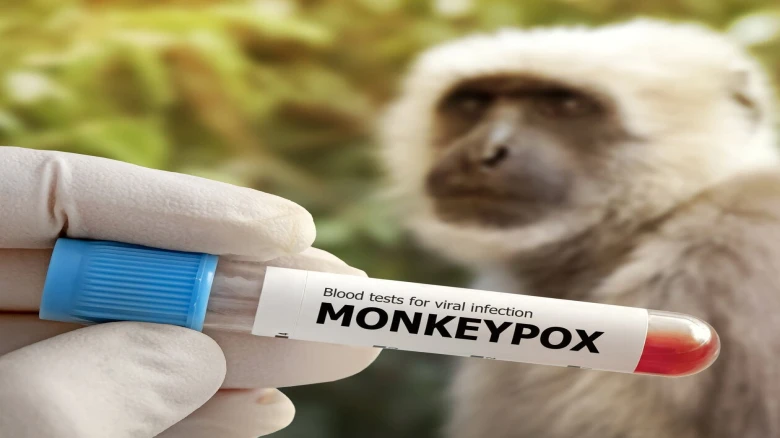Mpox is caused by the monkeypox virus, a member of the Orthopoxvirus genus, which also includes the smallpox virus....
Digital Desk: Mpox, known as monkeypox, is a viral infection that has recently garnered global attention due to its resurgence in various countries. While the disease primarily affects adults, there is growing concern about its impact on children. Understanding the risks and implementing preventive measures can help protect children from this potentially serious illness.
Mpox is caused by the monkeypox virus, a member of the Orthopoxvirus genus, which also includes the smallpox virus. The disease was first discovered in 1958 when two outbreaks occurred in monkeys kept for research, hence the name. Human cases were first identified in 1970 in the Democratic Republic of the Congo. Since then, Mpox has become endemic in some Central and West African countries, with sporadic cases reported in other regions.
The virus can spread to humans through direct contact with the blood, bodily fluids, or cutaneous or mucosal lesions of infected animals. Human-to-human transmission occurs via respiratory droplets, direct contact with body fluids, or contact with contaminated objects such as bedding or clothing.
How Dangerous is Mpox for Children?
Children are particularly vulnerable to infectious diseases due to their developing immune systems. In the case of Mpox, children under the age of 8 and those with compromised immune systems are at a higher risk of severe illness. Symptoms in children are similar to those in adults, including fever, headache, muscle aches, backache, swollen lymph nodes, chills, and exhaustion. A characteristic rash, which usually starts on the face before spreading to other parts of the body, typically follows these symptoms.
In severe cases, Mpox can lead to complications such as pneumonia, encephalitis (inflammation of the brain), and eye infections, which can result in vision loss. The severity of the disease in children can be exacerbated by malnutrition and other underlying health conditions, making it crucial for parents and caregivers to be vigilant.
Preventive Tips from Doctors
To protect children from Mpox, doctors recommend several preventive measures:
1. Vaccination: In areas where Mpox is endemic or where there is an ongoing outbreak, vaccination can be a critical preventive measure. The smallpox vaccine, which has shown effectiveness against Mpox, can be administered to children at risk. However, vaccination availability may vary by region.
2. Hygiene Practices: Teaching children good hygiene practices is essential. Encourage regular handwashing with soap and water, especially after contact with animals or potentially contaminated surfaces. Using hand sanitizers when soap and water are not available can also be effective.
3. Avoid Contact with Infected Individuals: If there is a known outbreak of Mpox, it is vital to avoid contact with individuals who may be infected. Keep children away from people displaying symptoms such as fever, rash, or swollen lymph nodes.
4. Safe Animal Handling: Educate children about the importance of avoiding contact with wild animals, particularly those that are sick or dead. If living in or traveling to areas where Mpox is known to occur, avoid contact with rodents, primates, and other animals that could carry the virus.
5. Environmental Sanitation: Regularly clean and disinfect surfaces that may be contaminated with the virus. This includes bedding, clothing, and other items that could harbour the virus.
While Mpox can pose a serious health risk to children, especially those with weakened immune systems, following these preventive measures can significantly reduce the risk of infection. Parents and caregivers should stay informed about the disease, be vigilant for symptoms, and seek medical attention promptly if Mpox is suspected. By taking proactive steps, we can protect our children and help prevent the spread of this concerning virus.

Leave A Comment